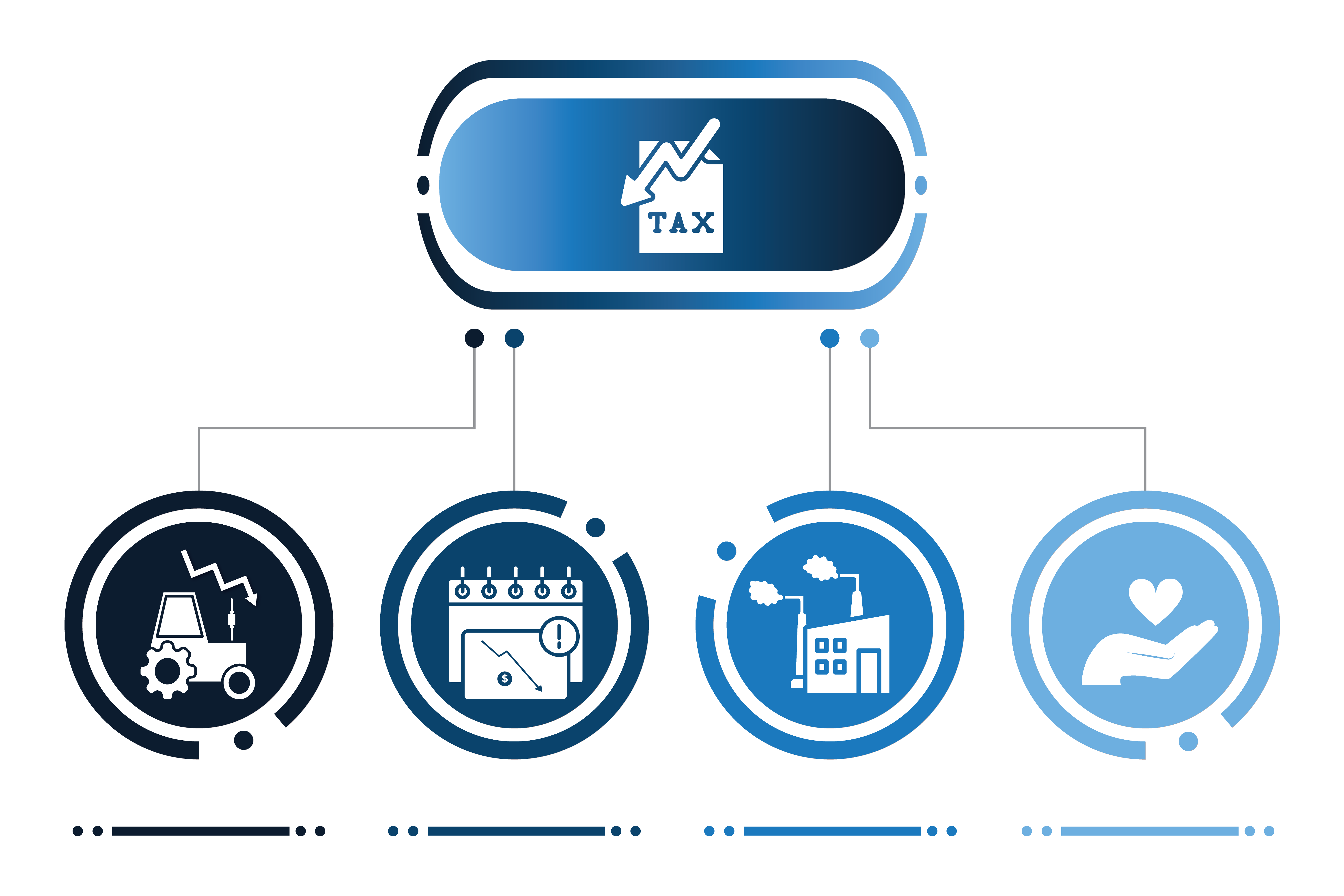Recent Egyptian Tax Reforms and Their Impact on Businesses


In light of recent economic developments, the Egyptian government has announced a package of new tax laws aimed at restructuring the tax system to align with current market needs. These laws are not limited to simplifying procedures but also seek to strike a balance between encouraging compliance and offering practical incentives, particularly for small and medium-sized enterprises (SMEs).

The key changes are summarized in three main laws:
Objective:
To integrate the informal economy into the legal framework by offering an opportunity for voluntary registration without facing the usual penalties.
How Does It Work?
Any individual or company that is not registered for tax purposes can register within 3 months (extendable) and benefit from full exemption from penalties. They may also amend their previous tax filings without late penalties if the settlement is completed within 6 months.
Example:
If you have been operating a business for years without formal registration, you now have the chance to rectify your status without paying accumulated fines.

Key Provisions:
A reduced tax system based on business size. For example:
0.4% for businesses with annual revenues not exceeding EGP 500,000.
Up to 1.5% for businesses with revenues up to EGP 20 million.
Additional Exemptions:
Cancellation of stamp duty on basic transactions.
Exemption of capital gains from asset sales.
Exemption of dividend distributions from taxes, enhancing companies’ ability to reinvest profits.
Why Is It Important?
It provides direct support to small businesses, enabling them to expand without the burden of heavy tax obligations.

Objective:
To foster greater transparency and fairness between small business owners, taxpayers in general, and the Tax Authority.
Key Points:
Capping late payment interest at no more than 100% of the original tax due.
Allowing settlements in tax-related offenses in exchange for financial compensation.
Regulating the mechanisms for accounting withheld taxes, including a 12.5% compensation rate on uncollected or under-withheld amounts.

Opportunity to Regularize Your Status: Even if you have previously delayed registration or filing, these reforms offer you a chance to return to legal compliance without harsh penalties.
Reduced Financial Pressure: If you operate a small business, you will benefit from lower tax rates and simpler procedures, enhancing your financial stability.
Greater Clarity: The new amendments bring more transparency to tax dealings, reducing the risk of errors or disputes.
Review your accounting system and ensure it complies with the new laws.
Take advantage of the current opportunities to regularize your status if you have not yet registered.
Keep up-to-date with ongoing legal updates to remain fully compliant.
At AMG, a certified accounting firm with over 25 years of experience, we offer you:
Detailed analysis of the impact of the new laws on your business activities.
Comprehensive tax strategies to ensure you maximize all available incentives.
Continuous monitoring of legal updates to ensure your operations are always compliant with current regulations.

The tax reforms in Egypt for 2025 represent a new phase of openness and economic stimulus. Now is your opportunity to strengthen your legal standing and take full advantage of the new incentives. Contact the AMG team to have a trusted advisor by your side, supporting you every step of the way.
Last Update: Mon, Feb 23, 2026 7:44 PM
Total Views: 27553